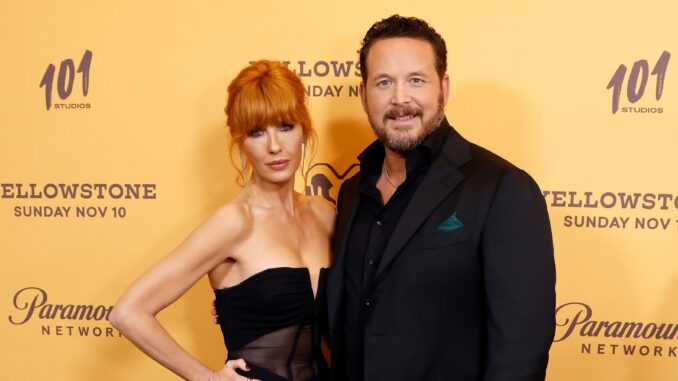
The digital world, for all its vastness, can sometimes feel remarkably small, akin to a global town square where collective joy, anger, and, most acutely, despair, can ignite and spread like wildfire. Such was the case when Cole Hauser, the enigmatic actor behind Yellowstone's iconic Rip Wheeler, dropped a cryptic hint about his character's future. The seemingly innocuous utterance didn't just cause a stir; it ignited a digital inferno, revealing the deep, almost primal, emotional ties fans have woven with Rip, and the visceral fear of losing a character who is, for many, the very heart of the Dutton ranch.
To understand the magnitude of the meltdown, one must first grasp the gravitational pull of Rip Wheeler. He is more than just a character; he is an archetype, a walking embodiment of rugged loyalty, silent strength, and a deeply buried, fiercely protected tenderness. Orphaned and scarred, rescued by John Dutton, Rip became the ranch's enforcer, its shadow, and its soul. His journey from a broken boy to the stoic, black-hatted foreman, and his tumultuous, passionate love story with Beth Dutton, has captivated millions. He is the dark knight, the protector, the unwavering force in a world constantly on the brink of chaos. To imagine Yellowstone without Rip is akin to imagining the Yellowstone River without its current – a stagnant, hollowed-out landscape. He is the anchor, the moral compass (however twisted), and the untamed spirit that grounds the sprawling drama.
So, when Cole Hauser, with a knowing look or a carefully worded phrase during an interview or a panel, subtly alluded to an uncertain or potentially tragic fate for Rip, the seismic shockwave was instantaneous. It wasn't a definitive announcement, no spoiler dropped like a bomb, but rather a whisper, a suggestion of fragility in a character perceived as invincible. Perhaps it was a comment about the "end of a journey," or the "sacrifices to be made," delivered with just enough gravity to send shivers down the spine of every fan. It was the calculated ambiguity that proved most potent, allowing the collective imagination of the fanbase to run wild, conjuring every conceivable, and mostly dreadful, scenario.
The reaction was immediate and illustrative of fandom's fervent devotion. Social media platforms became a cacophony of theories, lamentations, and outright pleas. On Twitter, #SaveRip trends erupted, alongside furious declarations of abandoning the show should the unthinkable occur. Facebook groups, usually bustling with discussions about Beth's latest barbed remark or John Dutton's stoic wisdom, transformed into digital support groups for the grief-stricken. Memes depicting fans in various stages of denial and despair flooded feeds. "If Rip dies, I'm done," became a common refrain, not just an empty threat, but a genuine expression of emotional investment. One could almost hear the collective gasp, the gut punch felt across continents.
This isn't merely about a fictional character on a television show; it's about the parasocial relationships forged between viewers and the narratives they consume. For millions, Yellowstone is an escape, a fantasy of untamed wilderness, fierce loyalty, and a primal struggle for survival. Rip Wheeler, with his quiet intensity and unwavering devotion, represents a certain ideal – a man of action, not words, a protector in a dangerous world. The thought of losing him isn't just a plot point; it's a perceived betrayal, a threat to the stability of a cherished fictional universe that has become a refuge. It evokes a visceral fear, mirroring the anxiety one might feel for a beloved, if distant, friend or family member.
The "losing it" isn't a hyperbolic exaggeration; it's an accurate portrayal of the passionate, sometimes irrational, emotional entanglement that defines modern fandom. It’s the desperate hope that a hint is merely a misdirection, a cruel trick by the writers to heighten suspense. It’s the frantic re-watching of old episodes, searching for clues, for any sign that the beloved cowboy might be spared. It’s the anger directed at Cole Hauser for daring to utter the words, and at the show's creators for even contemplating such a devastating turn.
Cole Hauser's subtle hint about Rip's fate served as a stark illustration of the power of storytelling and the profound connection between characters and their audiences. It underscored that television, at its most impactful, transcends mere entertainment to become a shared experience, a collective narrative in which the destinies of fictional figures hold real, palpable emotional weight. As Yellowstone hurtles towards its conclusion, the lingering question of Rip Wheeler's fate remains a testament to his iconic status, and to the millions of fans who, by losing it over a single hint, proved just how deeply they care about the man in the black hat.
